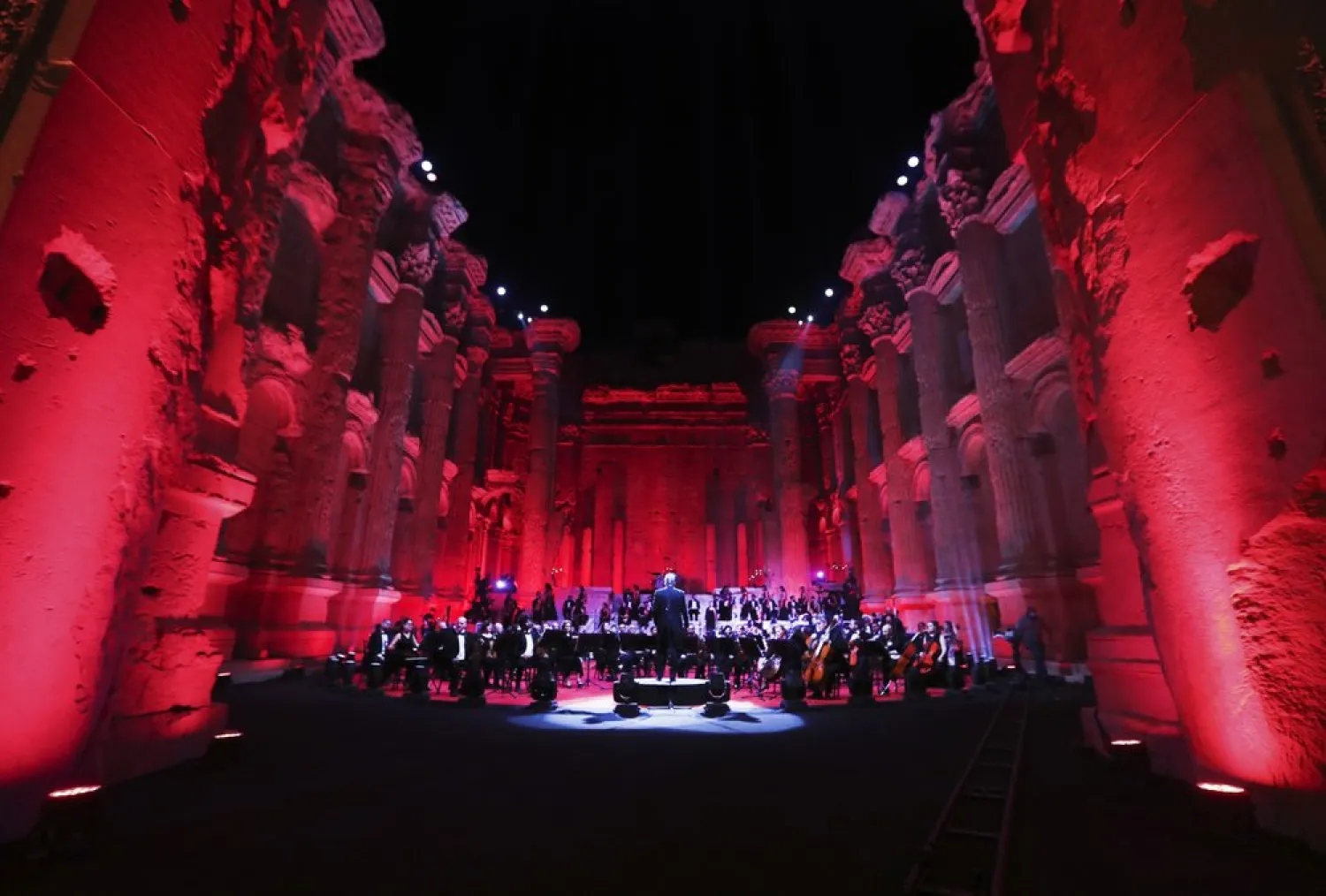Over the past two years, Lebanon has lived successive crises that influenced its artistic environment. Yet, some cultural centers and galleries have resumed their activity after a long pause, hosting painting and sculpting exhibitions following a forced recession period. The factors that paralyzed these centers are many, including the pandemic and the Beirut blast, along with many other crises, mainly the worsening economic situation, and the fuel and electricity shortage.
The festivals many Lebanese cities and towns used to host to spice up the summer season, and lure locals, expatriates, and Arab tourists didn't return yet due to the lack of sponsors, and financial funding. The daily and constant devaluation of the local currency has also affected the ticketing prices, considered a major source of profits.
The Beirut Holidays Festival is one of the most awaited events in the capital. It used to be held during the Eid al-Adha holiday every year, gathering many Lebanese, Arab, and Western singers. However, the tough circumstances in the country left the organizers helpless and unable to decide whether to hold it or not.
Amin Abi Yaghi, an organizer at Beirut Holidays said: "We didn't take our final decision yet. In the last few days, we started to consider some measures that could allow us to organize some concerts to bring festivities back to the capital."
"Unfortunately, there are many obstacles, but we believe we can make a small event that hosts local singers like Elissa, Wael Kfoury, and Joseph Atiyeh. Some friends seemed excited about the idea and promised to provide the needed financial support. Of course, bringing foreign artists is not possible given the current circumstances and the currency devaluation, and we still have to consider the cost of equipment, seats, and the lease of the location, among many other factors and logistics that can't be overlooked. Not to mention the daily devaluating Lebanese pound which affects the ticket pricing," he told Asharq Al-Awsat.
Speaking about the ticketing prices, Abi Yaghi suggested: "It would start at 300 LBP, and increase for VIP seats. However, all these ideas are still being considered, especially that the country is not yet ready for such festivals. We won't rush to take the final decision, hoping things would become clearer in the coming days."
On the other hand, the Batroun International Festivals decided to make a comeback, and it's currently preparing its event, but without singers this time. The plan is to organize a mini-festival that runs from July 16 to September 5.
Sayed Fayad, organizer of the Batroun Festivals told Asharq Al-Awsat: "All I can say is that we are not going to give up at all costs. The mini-festival will focus on local activities because we aim to keep the city on Lebanon's cultural and entertainment map. Our village, which is currently in its summer peak, will host a colorful event to enlighten the Lebanese days and nights with some hope."
The festival will open with two special evenings dedicated to local drinks and seafood.
"All the products served on those two nights will be made by locals, and from their produces, which are as good and fancy as the exported goods," said Fayad.
"The participants in those evenings will enjoy a long list of local beverages, including Batroun's popular lemonade, in addition to other juices made of red and white grapes. Visitors will also have the chance to try many popular Lebanese dishes, mainly seafood, made in restaurants across Batroun," he added.
On July 23,24,25, the city's old souk is set to host an art exhibition dedicated to Lebanese designers. The festival is planning a gathering of small wooden boats that will take fans on a marine trip from the Batroun port to the popular Bahasa Bay.
"The event will offer a unique sea scenery in which participate 300 boating fans," explained Fayad.
The Batroun Festivals will also include a photography exhibition by Photographer Fares Jammal, from August 15 to September 5. On September 2,3,4,5, the city is set to host the Batroun Mediterranean Film Festival (BMFF) on an open-air stage.
"BMFF will screen short movies selected from the Mediterranean region, in the expatriate square renovated by the Ministry of Culture's antiquities department. The free-entrance event will be open to the public over four days and will include other activities. The site is equipped with special seats bought from a cinema theater in Tripoli that closed its doors in 1965. The audience will enjoy an excellent cinematic experience that will take them back to the big screen world," the festival's organizer said.
For the closing ceremony, the festival will host a concert performed by Khaled Mouzanar and 10 other musicians who came to Lebanon to partake in this special night. Mouzannar and his team will play famous music pieces from popular movies including Caramel, Capernaum, and Villa Paradiso.
Instead of big events, other festivals like Beirut & Beyond, plan to release musical albums signed by singers who were supposed to perform on stage.
The album will be titled "Beirut 20-21," featuring 20 artists, some of them partook in former editions like Lebanese Rapper Jaafar Toufar, Sandy Chamoun, two members of "Tanjaret Daght" band, Khaled Omran, Tarek, and Marie Abu Khaled, and Scarlet Saad.









